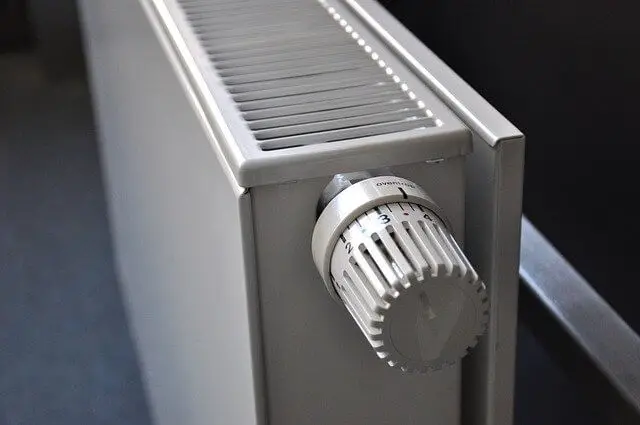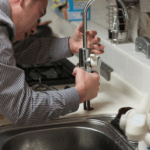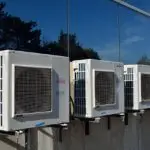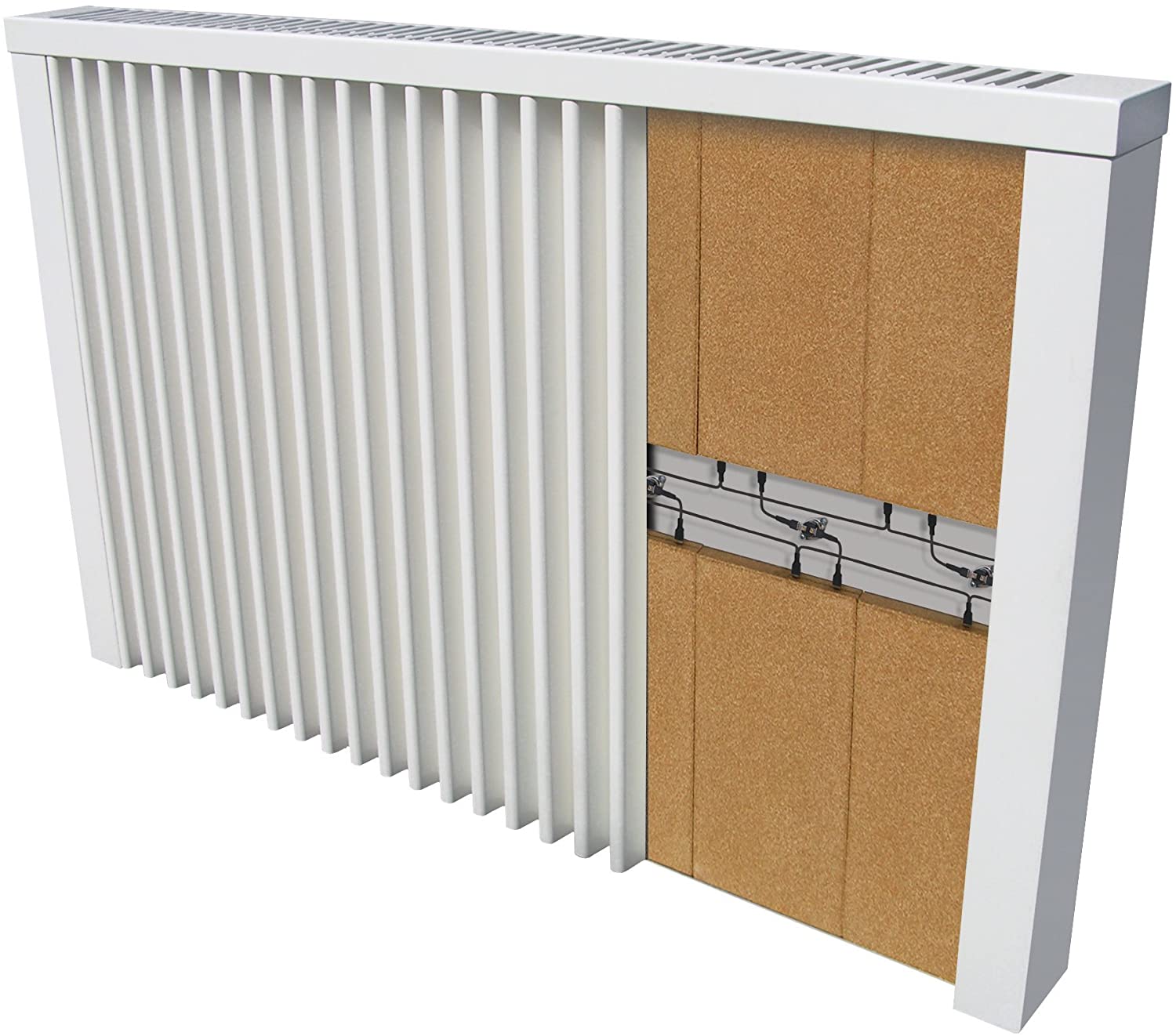Looking to find out more about getting a central heating system flush? We’ve got you covered with this complete guide. We’ll cover everything from what it is, the benefits, how to determine if you need one, how to do it yourself, and even how much it should cost for a professional to do the job for you.
If you don’t want to read through the whole post, you can easily navigate to the section that best answers your question by using our central heating power flush table of contents below:
- What is a central heating flush?
- Benefits to flushing out a heating system
- How often should a central heating system be flushed?
- How do you know if you need a power flush?
- What happens if you don’t flush your central heating system?
- Can you flush your own central heating system?
- How to power flush your central heating system (DIY)
- Flush central heating system costs
- Get a quote from a professional
What is a central heating flush?
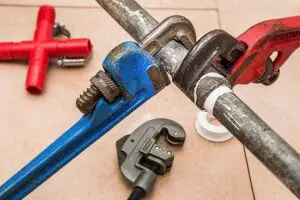 A central heating flush, often referred to as a power flush by plumbing & central heating companies is the act of cleansing and removing dirt from your boiler and central heating system. It removes any debris, rust, sludge, or dirt that may have accumulated over the years in the pipes, radiators, or boiler.
A central heating flush, often referred to as a power flush by plumbing & central heating companies is the act of cleansing and removing dirt from your boiler and central heating system. It removes any debris, rust, sludge, or dirt that may have accumulated over the years in the pipes, radiators, or boiler.
Flushing the system regularly will prevent corrosion or blockages which could eventually lead to issues with your heating system. The way this is typically done by professionals is using a machine to circulate a cleaning fluid, like Fernox for example, pumping it through with a high pressure to knock any debris free.
This allows the water to flow freely and easily through the system, causing less strain on the boiler, quicker heating radiators, and of course less chance of any breakdowns.
Benefits to flushing out a heating system
So, are you trying to decide whether it’s worthwhile doing? Well, there are a lot of benefits to flushing your heating system, the main one being that it will mean your boiler and radiators have a prolonged lifespan, but here are a few others:
- It can reduce your energy bills significantly as the radiators will heat up much easier & the boiler won’t be put under as much strain, which means your home will heat up much quicker.
- Your boiler is under less strain to pump water around the system, which means it will run quieter.
- The heat output of your radiators will just generally increase.
- The circulation throughout the system is improved.
- You can get several more years out of your boiler, avoiding an expensive replacement.
How often should a central heating system be flushed out?
There are a lot of factors that go into determining whether you actually need a power flush and if it will be beneficial. When you need a power flush depends on how old your boiler is, what type of boiler it is, how old your radiators are, what they are made out of, and the hardness of the water.
It’s likely that you’ve had different parts of the system installed at different times so it can be really hard to determine when to do a power flush. The most expensive part of your system is generally the boiler, and that’s the element you’ll want to ensure has the longest lifespan, so as a rule of thumb you should flush your central heating system when your boiler is between 5 and 6 years old.
How do you know if you need a power flush?
You might be reaching that 5 to 6-year point of having your boiler installed and your thinking, my heating system seems to be running fine, so how do you determine when you actually need a power flush? There are a few common signs that will indicate that it’s time to flush the system, which includes:
- Your radiators need bleeding regularly and they have cold spots. If the colour of the water is irregular when you bleed them, this is also a sign
- The boiler or radiators are noisy when running
- There are frequent issues that need repair
- Your central heating system takes a while to get warm
- Your boiler needs resetting regularly
- Radiators are struggling to heat up, but the pipes are warm
What happens if you don’t flush your central heating system?
If you don’t flush your central heating system it will essentially mean that your boiler, radiators, and pipes may not last as long as they should and cost you more in repairs over their lifespan.
If you don’t flush the system it can increase the likelihood of failures mechanical failures like issues with the pumps, motorised valves, heat exchangers, and hydraulic systems.
Another of the main reasons is simply the cost, if your system is full of debris it has to work harder and doesn’t heat up as much, and as you would gather having a more efficient system will save you a lot of money over the lifespan of your system.
Can you flush your own central heating system?
You might be wondering if you can save money on having a large company or tradesman coming to your house and the answer simply is yes, you certainly can, and it will save you a lot of money if you are able to do it yourself.
It takes a bit of know-how and confidence in your own DIY skills, so be honest with yourself as to whether you think you are capable of doing it, as if you aren’t you may damage your heating system.
How to power flush your central heating system (DIY)
Let’s get started. In order to get going what you first need to do is stop the power supply to your system. Leave the earth continuity bond alone, isolate both central heating pump valves, and now remove the pump from your system.
You now need to connect your power flush system, like the Adey Complete Magnacleanse Solution Mack01, to your central heating system.
If you want to do is in a cheaper way, there are some solutions that will require you to connect it to the radiator valve tails, which are less expensive than the above example. If you are doing it this way turn off your radiator valves, whilst disconnecting one, not any specific one in particular. You now need to bleed the air from the system and leave it open. Remove all the water from the radiator and connect your power flusher to the return valve.
You also need to be away if you have an open vented system you’ll need to turn off the mains valve to stop your system from refilling. You now should be ready to power flush, but there are a few quick things you need to do and check before going ahead:
- Make sure your boiler is completely off – there’s no power to it at all
- Your radiator valves are fully open
- The diverter valve is fully open
- Make sure your water supply is off
- If the system is sealed, you’ll need to depressurise it
You’re finallly ready to get started, let’s get power flushing!
- First things first, make sure your dumping or overflow hoses are going to a suitable waste area, it will get messy
- Add the cleaning fluid to the power flush device you’ve connected
- Switch the unit on, so it will start circulating through the system
- Turn on your boiler, it has to heat the chemicals and start the process
- Turn it off again when the water temperature has got to about 45 degrees
- Close all the radiators, bar one, and allow it to flush through
- Rinse & repeat for all the radiators
- Open all the radiator valves and let the power flush do its work and go throughout the whole system freely
- When the water runs clean add a neutralising agent
- Do another flush completely to check it’s all cleaned out
- Add a corrosion inhibitor
- Let it circulate and once it has, make sure you close all the radiator valves
- Reconnect your power flushing device, and reconnect your central heating system
- Open all the valves
- Turn your water back on
- You’re good to go! A freshly flushed system
Flush central heating system costs
 As you can see there is quite a lot involved in flushing a central heating system when you’re doing it yourself, it also requires quite an expensive bit of kit if you are only doing it as a one-off. A lot of people don’t particularly want to flush their own system or aren’t confident in their ability to do so and look to hire an expert.
As you can see there is quite a lot involved in flushing a central heating system when you’re doing it yourself, it also requires quite an expensive bit of kit if you are only doing it as a one-off. A lot of people don’t particularly want to flush their own system or aren’t confident in their ability to do so and look to hire an expert.
How much does it cost for a power flush? The truth is it varies wildly depending on who you go to.
A small independent plumber might charge you between £200-300 for a power flush of your full system. Going to a large company like British Gas or HomeServe will result in you paying anything from £300-800, depending on what offers are available at the time.
Get a quote from a professional
Interested in getting a power flush? We can get someone to clean your full central heating system at a low cost. If you use the form below we will contact local tradesmen and small companies to get quotes on your job so you can easily find the lowest.
Get started:
 Guides4Homeowners Useful Information & Guides
Guides4Homeowners Useful Information & Guides
